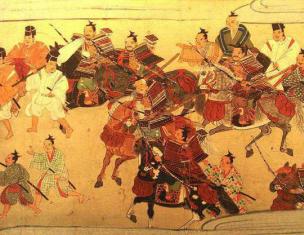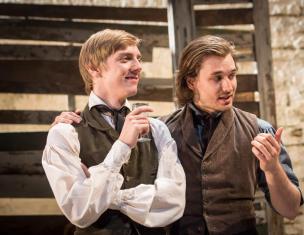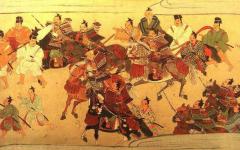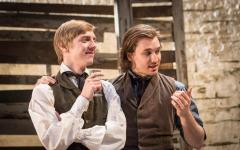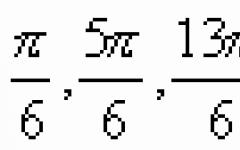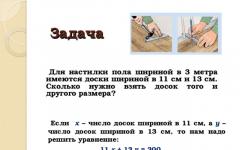Topic of the teachers' council:
Dates
Venue
The pedagogical council takes place in two stages:
Stage 1 (preparatory)
1. Before the teachers’ meeting, a plan for preparing the teachers’ council is posted.
2. The training plan includes the following areas of work:
a) the purpose and objectives of the teachers’ council;
b) composition working group on preparing the teachers' council;
c) plan preparatory activities before the teachers' meeting
* study of all documentation;
* attending classes, walks, routine moments, parent meetings, open day;
*questioning of teachers, and if necessary, also of parents;
*exhibition methodological literature, plans, review-competition of groups;
*open events on the topic of the teachers' council;
*seminar or lecture on the topic of the teachers' council.
Objects of control:
*diagnostics of the level of knowledge, skills and abilities in educational areas relevant to the topic of the teachers' council;
*visit regime moments, classes, mutual visits between teachers;
*thematic check on the topic of teachers' council.
Stage 2
Holding a teachers' meeting
1. Form of conduct: business game, round table, pedagogical council, debate, conference.
2. A month before the teachers’ meeting, draw up a detailed plan for the work of the teachers’ council and visualize it in the methodological corner.
3. Prepare materials on the implementation of the decisions of the previous teachers’ council.
4. During the teachers’ council, an expert group works, which produces and processes materials based on the results of the work of the teachers’ council. A draft decision of the teachers' council is being prepared.
5. The press center is working, preparing materials for printing.
6. The exhibition, the necessary equipment for the teachers’ council, and a notice on the results of the first stage of work are prepared. Literature exhibition.
7. Analysis of the work of the teachers' council.
8. Final order to encourage teachers \if necessary\
9th edition teaching materials, reminders to help the teacher.
10. Design of a folder with teacher council materials.
11. Based on the results of the teachers’ council, a preschool methodological journal “Preschool Education”\or another\ is published.
12. Formation of further goals and tasks that require solutions.
Training plan for the teaching council on the topic
“Ecological education using living nature”
Goal: to increase the level of environmental education of children in preschool educational institutions.”
Objectives: 1. Systematize the work on environmental education, establish interaction between specialists and preschool teachers on this topic.
2. Strengthen children’s assimilation of basic norms of behavior in relation to living nature.
3. Develop creativity teachers and parents.
Composition of the working group for the preparation of the teachers' council:
1. Bevzenko V.S. – head of the preschool educational institution.
2. Ilyina T. A. – Art. preschool teacher.
3. Vorobyova N.M. – environmental educator.
Event plan:
1. Study of plans for educational work, plans for working with parents on the topic of the teachers’ council - resp. Art. teacher
2. Mutual attendance at classes to get acquainted with nature - by agreement.
3. Sports competition “Vegetable garden on the window” – resp. ecologist Vorobyova N. M.
4. Open viewings of the pedagogical process in all age groups.
6. Classes on protection from environmental hazards - environmental educator.
7. Diagnosis of children’s knowledge – environmental educator.
8. Consultation for educators “Project method in preschool educational institutions” – art. teacher
9. Preparation of materials for the press center - method advice.
Pedagogical council “Ecological education using living nature”
Form of work: oral journal.
The urgency of the problem is the head of the preschool educational institution.
Terminological dictionary.
Definition of the concepts “ecology”, “ecological education”, “ecological education”, “ecological culture”. Analysis of programs for environmental education of preschool children.
Diagnostics of children's knowledge based on familiarity with living nature.
Listen to the experience of educators working on this topic.
Presentation by each group of the magazine “Little Ecologist”\ a product of joint creativity of children, parents and educators\.
5. Business game.
The business game consists of three parts. Each stage of it is regulated. At the end, a general summary is summed up. The winners of the game and the entire teaching council are celebrated. Teachers participate in the game in pairs, i.e. the answer of two people (a team of two people) is evaluated at once.
Part 1. Warm up. Questions are asked to each pair in turn:
*What does the term “ecology” mean?
*What are the main environmental problems around the world and in our country\native village, region\?
*What is the main essence of environmental education for children? Why should they be taught from preschool age?
*What is the impact of the environment on children's health?
*What do you see as the reasons for children’s careless, sometimes ruthless attitude towards nature? What exactly do you take the blame for as a teacher?
*What is the main role of the teacher in the environmental education of preschool children?
*In what activities together with children can you practically contribute to the conservation of nature?
*What kind of work, in your opinion, should be carried out with parents in preschool educational institutions.
*List the classics of Russian and foreign literature who glorified nature in their works.
*List the proverbs and sayings you know about nature.
*Remember and briefly list folk signs about nature.
*Remember and read by heart the poems about nature by each of the pair of teachers.
Musical break and summary of the warm-up.
Part 2. Solving pedagogical situations.
Situations are assigned to the entire team. The answers may come from several couples for each situation, but from the position of these people, experts evaluate a more rational solution:
1. Four children from five to seven years old are playing in a forest clearing. The smallest one shouts: “Let's catch a butterfly and set its wings on fire!” A man walking by and hearing this call stops the boy and asks: “Why do you set fire to a butterfly’s wings?” He answers “Just like that...”
How can one explain such cruelty of children? What are the methods and techniques for teaching preschoolers to respect nature?
2. Ira walked home from kindergarten through a park planted with currant bushes, and loudly told her mother how the whole group watered them here. But the mother was busy with her own thoughts.
– Why don’t you listen to me? – Ira asked and pulled out her hand.
– What kind of whims is this?! – the mother flared up, breaking a young currant branch and whipping the girl with it. And then she said angrily: “Who needs your troubles, it’s just a child’s game!” Without you, there will be enough conservationists.
Which negative consequences can there be a mother's action?
3. You go to work. Two mothers are talking peacefully on the path. At this time, their children nearby are breaking the branches of a young tree. Both already have a large armful of them in their hands.
Do you think children are simply naughty or did no one tell them that they should not harm plants? Will you silently pass by, condemning the mothers\children\ in your heart, or stop and talk to the mothers\children\?
Part 3. Express questions. Questions are quickly asked to each pair in turn; the answers should also be immediate and brief:
*Why does a squirrel need a long and fluffy tail?
*Why does the fox run all winter while the bear sleeps?
*During leaf fall, you can see a lot of fallen branches under the aspens. How to explain this phenomenon?
*Why do patterns appear on windows in winter?
*Why does a cat wash itself often, but a dog doesn’t?
*Why are the leaves green in summer and yellow and purple in autumn?
*How can you find out about approaching bad weather in the summer without a barometer?
*Why do the leaves fall?
*What kind of weather does a column of smoke foreshadow?
*The frogs croaked for what?
Summing up the game.
Experts name the grades of each microgroup for the first part of the teaching council \homework\ and for the second \game\ part separately. Then the overall result is summed up and the most distinguished pairs - microgroups of two people - are awarded.
Assignment to the teachers' council.
1. Competition of environmental projects among creative micro groups.
(The composition of creative groups is selected by the senior educator, taking into account work experience, qualifications, creative potential and personal sympathies)
2. Make a report on seasonal work in a corner of nature \vegetable garden on the window, a calendar of observations, etc.\ with photo comments.
3. Create a journal of joint creativity between children, parents, and teachers, “Little Ecologist.” "Spring".
Children's crafts “New Year's miracles with your own hands” Winter has come to us. It's a wonderful time! A snow-white blanket enveloped the earth. Cleanliness and Beauty! White snow has decorated the city, the New Year is about to come, and under the tree very soon everyone will find their own surprise! In every kindergarten with the arrival...
In our kindergarten there was a campaign “Take care of the Christmas tree”. Volunteers preparatory group don't bypass her! They actively took part in organizational work. At their site, teachers and volunteers organized a flash mob called “Take care of the Christmas tree,” where they invited children senior group For...
Form: meeting in a cafe. Participants: parents, teachers. Goal: developing interest in learning about your child, emotional rapprochement of all participants in the educational process, organizing their communication in an informal setting. Preliminary work: - production of booklets for parents; - survey of parents on the topic of the meeting. Decoration: The hall is decorated in a cafe style (there is tea, sweets on the tables, calm music sounds...
Municipal preschool educational institution "Kindergarten of a combined type No. 246" Zavodsky district of Saratov Abstract of the GCD in the second younger group using gaming technology “Chicken’s Birthday” Educator: Gerasimenko E.S. Saratov 2019 The main educational program of the Municipal Preschool Educational Institution “Combined Kindergarten No. 246”...
The topics of teachers' councils in preschool educational institutions are approved at the beginning of the school year, depending on the tasks established by the annual development plan of the preschool organization. It is possible to identify recurring topics that are discussed at the installation, final and current teacher councils in preschool educational institutions. We will tell you in the article what to discuss at the pedagogical council and what topics will be relevant in the 2019-2020 academic year.
The Pedagogical Council is a collegial governing body of a preschool educational institution. The topics of teachers' councils in preschool educational institutions are planned and approved at the beginning of the year by the head and methodologist, and the entire teaching staff of the kindergarten participates in the meeting. The conduct of pedagogical councils is regulated, first of all, Federal law“On education in the Russian Federation”, as well as regional regulations (“Model rules for activities pedagogical council and the procedure for his election in organizations preschool education and training, primary, basic secondary, general secondary and additional education") and local acts of the institution, in particular - the Regulations on the Pedagogical Council of the Preschool Educational Institution.
Typically, the teaching council is held once a quarter, and a maximum of five meetings are organized during the academic year. Number of teachers' councils and current topics depend on the tasks established by the annual work plan of the preschool educational institution. The same document prescribes the order and main issues of teachers' councils.
The first is the orientation teachers' council at the preschool educational institution, the topic of which is “Updating the tasks of the future period, planning the annual development strategy.” This is the August teachers' council, which is followed by the rest of the collegial meetings at the preschool educational institution. The next three teaching councils - thematic - reflect priority areas development of preschool organizations in the current period. The annual circle is completed by the final teachers' council, the topic of which is “Analysis of the results of the past academic year in the preschool educational institution.” The last meeting is planned for May-June. Besides, kindergarten in 2019-2020 has the right to hold extraordinary teacher councils, the topics of speeches at which are determined by unplanned needs and emergency situations in the preschool educational institution.
The purpose of each pedagogical meeting is to concentrate the collective experience of educators, familiarize teachers with new work methods and the experience of colleagues, clarify priority tasks and help in solving pressing problems. As a rule, the teachers' meeting pursues all or several of the following objectives:
choose the vector of development of the preschool educational institution;
decide on the main choice educational program TO;
make the experience of colleagues publicly available and useful for the entire team;
plan a promotion professional excellence, approve the certification schedule;
resolve organizational, administrative and economic issues;
read the reports of the head of the preschool educational institution.
Depending on the topic, teacher councils in preschool educational institutions can be held in the form of a traditional meeting, which has clear regulations and a summary of the work, or in a non-traditional format - a game, a conference, a round table and even an auction. The form and topics of the installation (August) and final teacher councils in preschool educational institutions usually remain traditional. Although there are exceptions here, we invite you to familiarize yourself with the summary of the August teachers’ council on the topic “New academic year in preschool educational institution” in the format business games:
More often, unusual formats are used when holding meetings at innovative topics. Regardless of the agenda of the meeting and the method of discussing the problem, the teachers' council must make a decision, which, together with the discussion of the topic, is formalized in the minutes of the teachers' councils in the preschool educational institution.
The first meeting is held in August, at which the following topics are raised annually:
results of the summer healing period in a preschool educational institution (the topic of the speech is read out by the head);
the readiness of the kindergarten for the new school year based on the results of the inspection;
approval of the development strategy and annual curriculum for the preschool educational institution in the new year.
The Education reference system provides useful information regarding what will change in the work of schools and kindergartens from the new school year, ready-made instructions for teachers, regulations of the teachers' council and protocols for interaction with parents of pupils and planning work with them are provided
Regular pedagogical meetings are held throughout the year, once every two to three months. They discuss current educational activities, as well as the work of teachers who are preparing to receive the first or highest category. The relevance of topics at such meetings is determined by the annual tasks of the preschool organization and is approved at the beginning of the school year.
As a rule, from year to year interesting topics reports at the pedagogical council of the preschool educational institution become:
issues of health and physical development of children;
environmental, aesthetic and labor education of preschool children;
effective approaches to the development of nursery children;
organizing successful preparation for school for graduating groups;
modernization of the developing subject-spatial environment of the kindergarten;
use of technology in educational activities.
Interesting topics for discussion at teachers' councils in preschool educational institutions are diverse and depend on the development priorities of the institution at at the moment. You will find options for modern topics of pedagogical meetings for preschool teachers at the link:
By the time of the final teacher council, teachers prepare the results of pedagogical diagnostics and monitoring in kindergarten, and use surveys to find out the level of satisfaction of parents work of preschool educational institution. The final teacher council at the preschool educational institution is held in May-June. During the meeting, the results of the preschool organization’s activities for the year in all areas of the Federal State Educational Standard are summarized.
Receive a standard diploma
Learn more about the legal regulation of the educational activities of preschool educational institutions, the development of the main educational program preschool education and get methodological recommendations experts will help curriculum“Organization and quality control of educational activities in preschool educational institutions”
The topics of the final pedagogical councils at the preschool educational institution will cover the following issues:
the results of the implementation of decisions made at the current teachers' councils in 2019-2020 at the preschool educational institution, and on the implementation of the tasks of the annual plan of educational work;
a report on the physical development of pupils, the state of children’s health and kindergarten attendance;
dynamics of speech development in preschool children;
the degree of readiness for school of children in the preparatory group;
results of methodological work.
Topics for speeches at the teachers' council at the preschool educational institution are prepared by senior educators, educators, and specialized specialists - a physical education instructor, musical director, speech therapist, as well as one of the topics of the report at the final pedagogical council of the preschool educational institution is read out by an educational psychologist.
Each speech at the pedagogical council in kindergarten is carefully recorded. The protocol indicates the date of the event, serial number meetings, list of participants and absentees. The minutes also reflect the topics and a brief summary of the teachers’ council at the preschool educational institution, decisions made and the results of the work following the previous meeting. The chairman and secretary of the pedagogical council affix their signatures to the protocol, and the document is registered in the journal for registering the minutes of the preschool teacher councils.
Tips for beginning preschool teachers.
Author: Anufrieva Irina Viktorovna, senior teacher of the preschool educational institution “Kindergarten “Bell”, r.p. Dukhovnitskoye, Saratov regionThis article about organizing and conducting teacher councils will be of interest to novice pre-school educators and senior educators who do not yet have work experience.
The problem of improving the quality of training and conducting pedagogical councils worries the majority of heads and senior teachers of preschool institutions. It is relevant for both beginners and experienced managers.
Pedagogical Council– a permanent collegial body of self-government teaching staff. With its help, the development of preschool educational institutions is managed.
Pedagogical council is held once a quarter (at the discretion of the administration preschool may occur more frequently). Teachers' councils are planned at the beginning of the school year by the head and methodologist of the institution. Without planning, it is difficult to solve tasks and problems that have arisen in a preschool institution.
At meetings of the pedagogical council the following are discussed:
*issues of educational work with children;
*use of new achievements in science and pedagogical practice;
* existing shortcomings, decisions taken to eliminate them;
*issues of exchange of experience.
Structure of the teachers' council:
As a rule, the meeting begins with an analysis of the decisions of the previous teachers' council. This can be done by the director, the kindergarten methodologist, and an experienced teacher who is entrusted with this.
It is then assumed introductory remarks Chairman of the Council, in which he covers:
- The relevance of the problem under discussion in general and for this preschool institution in particular;
- The main directions of work for its implementation and what has been done at the preschool educational institution in terms of improving this work during the current or last year, including in preparation for this teachers’ council;
- If available, normative document on this issue is given brief analysis its implementation.
Next, an agenda and work regulations are proposed and the first speech is heard in accordance with the agenda (usually these are the results of a thematic check). Then there is a discussion of the results of the study, during which teachers must answer why the Program is not being implemented (skills are not developed), the reasons (what is hindering), what needs to be done to eliminate the shortcomings.
After this, other presentations on this issue are heard (reports, work experience, results of mutual visits). Each speaker can be asked questions by the chairman or members of the teachers' council.
In conclusion, a draft decision is proposed on this issue, which is discussed, supplemented and approved by vote. All points of the decision must be specific and have realistic deadlines. Specific points are developed based on an analysis of the causes of shortcomings and can be aimed at:
- creation of necessary conditions;
- providing methodological assistance;
- creation of a work system (if the work is carried out chaotically);
- strengthening control (if work is carried out in bad faith);
- creation, generalization or implementation of experience.
Topics of teachers' councils indicated in the annual plan of the preschool educational institution. If necessary, additions and clarifications are made to it.
The main issue on the agenda Every day there are always results from the work of teachers: the level of development of students; their health status; development of forms collaboration teachers and parents.
The main goal of the pedagogical council – to unite the efforts of the preschool educational institution team to improve the level of the educational process and use achievements in practice pedagogical science and best practices.
Types of pedagogical advice:
*installation, or analytical-planning - is held before the start of the school year, at the end of August, and is devoted to analyzing the results of the previous year, adopting a plan and focusing on solving upcoming problems;
*thematic teachers' council with intermediate results is dedicated to one of the annual tasks of the teaching staff;
*final, or final-organizational - held at the end of the academic year, it sums up the results of the year.
Pedagogical councils are also distinguished by forms of organization:
*traditional- this is a teachers’ council with a detailed agenda, held with strict adherence to regulations on each issue and making decisions on them;
*pedagogical council using individual methods activation of teachers;
*unconventional teachers' council(for example, in the form of a business game, conference, etc.). Its preparation requires writing a script, dividing participants into teams and assigning roles.
However, it must be remembered that the result of the work of any teachers’ council should be the adoption of decisions to improve the work of the team.
Usually during the meeting it is drawn up draft protocol, which is then duly formalized within five days. The date of the minutes is the date of the meeting. Competent protocol preparation is a kind of art. It is recommended to elect a secretary for at least an academic year. The protocol is signed by the chairman and secretary of the pedagogical council.
In order for the teachers' council to be a governing body, and its decisions to be effective and conducive to improving work with children, it is necessary to carefully prepare for it.
Algorithm for preparing the teachers' council
1. Definition of goals and objectives.
2.Formation of small creative group(think tank) teachers' council.
3. Selection of literature on the issue under consideration and preparation of primary material by a small creative group.
4. Drawing up a plan for the preparation and conduct of the teachers' council (the questions of the teachers' council, the plan of conduct, schedules of questionnaires and open viewings are posted (at least) a month before the teachers' council, the topic of the teachers' council and literature on the stated topic - 2 months).
5.Development of questionnaires and conducting surveys.
6.Attending open screenings pedagogical process.
7. Discussion, processing of digital material by a small creative group.
8. Systematization and preparation of the final material.
9.Seminar sessions on the topic of teachers' council.
10. Conducting creative workshops by experienced teachers.
11.Preparing questions for discussion at the teachers' council.
12.Preparation of the hall and all necessary material resources.
13. Inclusion in the work of psychological services: surveys parents, prepares for work in small creative groups.
14. Preparation of a draft decision of the teachers' council.
15.Analysis of the work of the teachers' council.
16. Final order on encouraging teachers.
17.Designing a piggy bank with teacher council materials.
18.Formation of further goals and tasks that require solution
A teacher council of any form necessarily requires an analysis of the results with answers to the following questions (reflection): what was achieved and what was not achieved during the discussion; which of the teachers was active and which was passive and why; what lessons can be learned from the experience; how to influence individual passive teachers. Various preschool educational institutions and teaching staff take part in the preparation of the teachers’ council.
The pedagogical council helps in forming a team of like-minded people, creates conditions for analysis and evaluation existing installations and principles in accordance with the requirements modern science and best practices.
Elena Vasilievna Kulakova
Report for the teachers' council. “The role of the teacher and the child in educational process activity type"
"The only path leading to knowledge is
This activity»
Principle active approach has changed views on the role of the teacher and student in the educational process. Educational activities acts as a collaboration teacher and child. The child should not be a passive listener, perceive ready-made information given to him by the teacher. Knowledge is not given ready-made, but is mastered by children in process of activity organized by the teacher. The child becomes active activist, "discoverer" the surrounding world, and the teacher acts as an organizer and assistant.
As an organizer I:
1. Modeling educational situations according to technology "Situation", organizing process"discoveries"
For example, a child is asked to roll 2 objects through a gate. Children independently come to the conclusion that the ball is rolling because it is round, without corners, and the corners prevent the cube from rolling. So way, independent “discoveries” of children, resolving problem situations, identify significant signs of objects and phenomena of the surrounding world and create conditions for further progress.
2. I select methods and techniques. During the lesson I use gaming, visual, verbal and practical methods
Gaming methods and techniques We:
1. Surprise, emotionality.
2. Creation of game situations.
3. Outdoor game.
Verbal methods and techniques We:
1. Use of artistic words.
2. Questions.
Practical methods and techniques We:
1. Joint action teacher with child.
2. Exercises.
3. Carrying out assignments.
Visual methods and techniques We:
1. Display of objects and toys.
2. Assignments for children, questions.
3. Including items in children's activities.
4. Active action of children.
5. Performing game actions.
Change of different views activities at each stage of the lesson allows you to prevent fatigue with one type of activity To obtain better results children's activities using a variety of materials: visual aids, didactic handouts.
During classes, I try to communicate with children on the same level, "eye to eye" rather than dominate children. The relationship between me and the children was built on the subject-subject principle. I try to be in position "near".
3. I create an appropriate developmental subject environment
Our group has an experimental area activities. Everything in it is accessible to children.
The child can do one or another activities: sift the cereal through a sieve, determining why one cereal sifted and the other (the one that is larger)- No; separate the beans from the peas, comparing them by size, shape and using them to make an appliqué; fashion something out of wet wipes; build castles from wet sand; compare how rubber and metal balls behave on water.
Role-playing games center
Role-playing game is a universal method child's life activity. In role-playing games the child is trying to reproduce those actions of adults that he observes in his everyday life. Game one of important means knowledge of the surrounding world. The game is an important condition social development children. The game promotes the physical development of children, stimulating and motor activity. For the timely development of the game in the group, we have created the necessary conditions: equipped the play area with children's furniture, introduced various attributes, including copy attributes and their substitutes, which will help child use your accumulated experience in the game world.
A corner of nature.
In the corner of nature there are plants necessary to familiarize children, collections of shells, pebbles, herbariums, models of wild and domestic animals, models of vegetables and fruits, etc. There are also diaries for monitoring the development of onion growth, germination of seeds, and seedlings.
There is also an area with educational games.
Everything in it is accessible to children. The use of educational games increases the effectiveness of pedagogical process, in addition, they provide the opportunity for multifaceted personality development, uniting children on the basis of common plans and interests.
Logic blocks by Zoltan Dienes;
Nikitin's intellectual games;
Games with Cuisenaire sticks.
Why did I choose these particular games for work? Because they encourage children to activities, contribute to the development children's creativity, cognitive activity, visual-effective thinking, combinatorial and design abilities. This is especially relevant since society currently needs a generation of young people with such personality qualities as initiative, the ability to think creatively and find innovative solutions.
Game situation based activity approach:
(cookies, for example) process problem way
Work with Dienesh blocks can be carried out in all areas activities:
In outdoor games (as object landmarks, designation of houses, paths, labyrinths);
How to make board-printed cards (to make cards for games "Resettlement of the tenants", "Which figure is missing", "Find a place for the figure" etc.);
in role-playing games "Shop"(money is indicated by blocks, product prices are indicated by code cards). "Mail" (the address on the parcel, letter, postcard is indicated by code cards). Likewise: "Train"
If a child tells me “How to do this?”, “Great, how interesting!”, that means with role I managed the organizer.
As an assistant I:
1. create a friendly environment...
2. I help if the child needs it….
3. I record the child’s successes, comparing him only with myself...
If the child is happy to go to the group, feel free to appeals to me for help or advice, is not afraid to express his opinion, which means role I succeeded in having an assistant.
And the child actively explores the world in different types activities....How exactly.
Game situation based activity approach:
Children are asked to separate the blocks (cookies, for example) between Chipollino and Buratino. Cipollino's are all round, and Buratino's are all red. IN process solution to this problem arises problem: there are objects that are both red and round, and there are objects that are not red and not round. So way children themselves can come to the conclusion that it is fair to place red and round blocks between the characters, and non-round and non-red ones outside this space. In the future, it is possible to use more complex games, where the ability to operate three properties simultaneously is formed. These games are played similarly to the previous one.
One of the main forms of organization of direct educational activities is systemically - activity approach. Let's analyze the technology activity method, which we use during the GCD.
1. Creation problematic situation.
2. Target setting.
3. Motivation to activities.
4. Designing solutions to a problem situation.
5. Performing actions.
6. Analysis of results activities.
7. Summing up.
Creating a problematic situation. (process of involvement in activities)
1. Add or remove something to get most children interested.
2. Create a surprise moment or surprise effect (knock on the door, noise, rumble, etc.) .
3. Create intrigue (“wait, I’ll show you something interesting soon, etc.)
Target setting.
1. Organize a special situation (replace all soap with pebbles, crayon with sugar cubes)
2. agree on something in advance with colleagues.
Motivation to activities.
1. During a walk in the fall.
- Guys, bring me the beautiful leaves that you find on the plot or at the dacha on the way to kindergarten, they are very necessary for a surprise.
Children are interested: “What surprise?”
2. To the teacher need children's help with something specific, he addresses children.
Today guests will come to our group, I really want them to like it with us.
Designing solutions to a problem situation.
1. Provide the opportunity to put forward various options for solving the situation in order to resolve the problem. Accept any options for children and offer something to choose from.
2. B process of activity always ask children "Why, why, are you doing this" so that the child comprehends every step. If a child does something wrong, give him the opportunity to understand what exactly it is.
Analysis of results activities.
Don't ask the children whether they liked it or not. Ask necessary: “why did you do all this?” to understand whether the child has realized the goal.
Summing up.
Praise not only for the result, but also for activity in progress.
Role teacher in implementing systematically - activity approach is great, since it is the teacher who is the key figure in educational process. Principle activities highlights the child as figure in the educational process, and the teacher is given role organizer and coordinator of this process. It's hard to overestimate the role of the teacher's activities, its influence on process formation and development of the child’s personality. It's important here All: both the rejection of the authoritarian style of communication in favor of a democratic one, and the personal qualities of the teacher, and his ability for self-development, and his professional competence.

